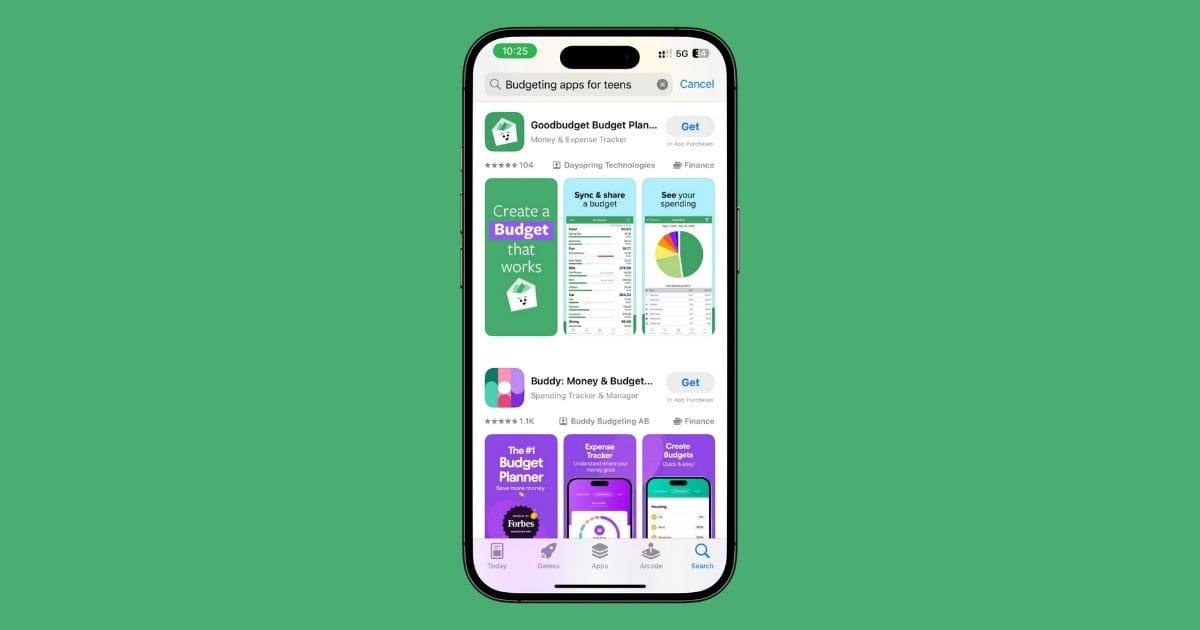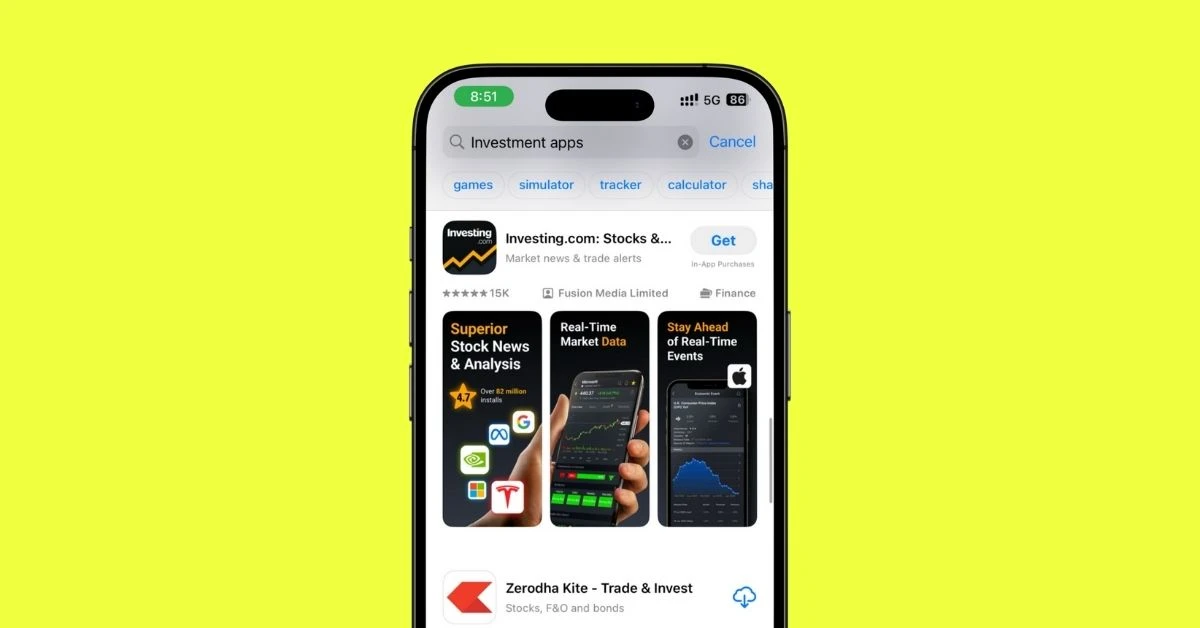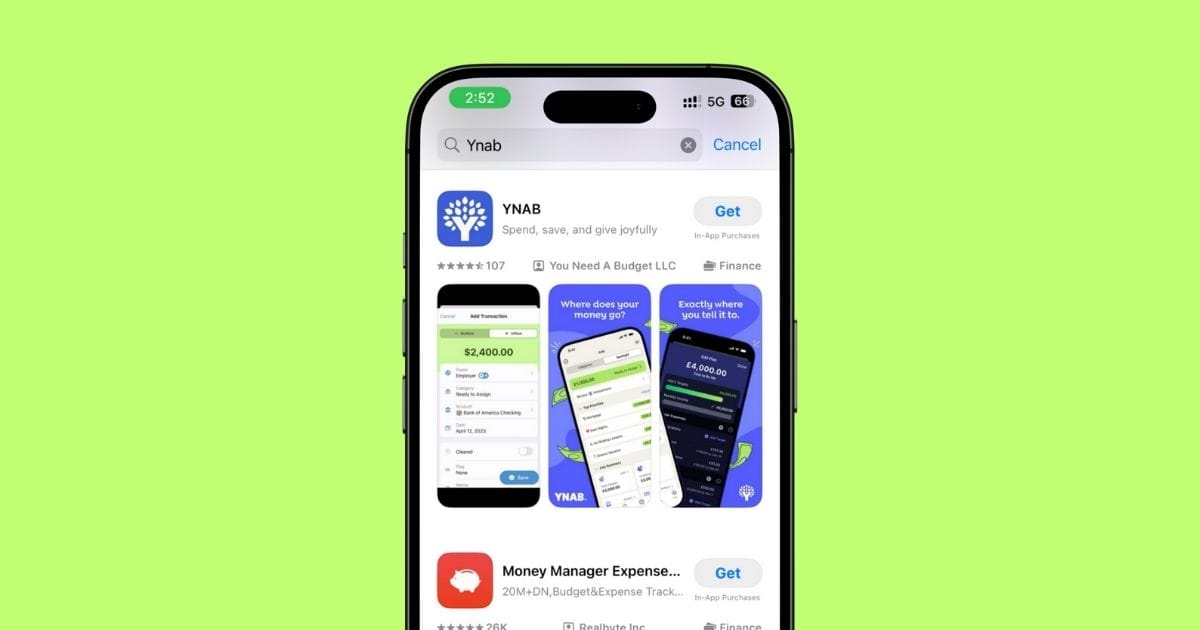17 Best Real Estate Investing Apps You Should Try in 2026
Finding good real estate investing apps is kinda confusing, you know, because there are just so many options out there.
And like, each one says they help you make money or build passive income, but you really don’t know which one actually works for you until you try it.
So I spent some time going through the apps people actually use in the U.S., and yeah… these are the ones that make real sense for anyone who wants to start small or even go big later.
Some of these apps let you invest with just a few dollars, some help you buy small shares in rental homes, and some give you really clean tools to check a property’s numbers before you put any money in.
And the best part is—you don’t need deep real estate knowledge to get started.
You open the app, put in a little money or run your numbers, and you’re good to go.
Here are the best real estate investing apps you should try right now.
1. Fundrise
Why I Picked It: great pick for getting into real estate with small amounts of money
You know how real estate usually feels like this huge thing where you need a lot of cash just to even start?
Fundrise kinda removes that stress.
You can begin with a very small amount, and the app basically spreads your money across different real estate projects, so you don’t have to pick anything on your own.
And the layout feels super simple… you just open the app, check your balance, see the projects you’re in, and that’s it.
What I really like is how the app shows updates on what’s happening with your money.
New projects, rental income, growth—everything stays in one place.
And if you’re someone who wants long-term growth without doing too much work, it fits perfectly.
You put in your amount and let it grow slowly month by month.
It’s just a very clean entry point for anyone starting real estate investing for the first time.
Also Read: 17 Best Property Management Apps
2. RealtyMogul
Why I Picked It: good for people who want access to more serious real estate deals
RealtyMogul feels a bit more “grown-up” compared to simple beginner apps.
When you open it, you see actual commercial properties, rental buildings, and bigger projects that normal people usually can’t access.
And the cool thing is—you don’t have to buy a whole property or deal with any paperwork.
You just pick a deal you like, put in your amount, and the app handles everything behind the scenes.
It also gives you a lot of details about each project, like cash flow, location, and what the plan is.
So you kinda get a clear picture before putting your money in.
And if you’re someone who wants to step up from small investments and try something that feels more real, this is a solid option.
It lets you be part of big projects without making things too complicated.
Also Read: 15 Best Real Estate Apps You Need
3. Arrived Homes
Why I Picked It: perfect for buying small shares in rental homes
Arrived Homes makes the whole “owning a rental house” thing feel super simple.
You don’t have to buy the full property or deal with tenants or repairs.
The app breaks each home into small shares, and you just pick the one you like and buy your part.
That’s it.
And once you’re in, you start getting a portion of the rental income without doing any actual work.
What I like is how easy the app feels.
You see pictures of the homes, the expected returns, and how much people are investing.
Everything looks clean and straight to the point.
If you’ve ever wanted to try real estate but didn’t want the stress of owning a whole place, this app gives you a really relaxed way to start.
It’s simple, low-pressure, and kinda fun to explore.
4. Groundfloor
Why I Picked It: great for people who like short-term real estate deals
Groundfloor works a little differently from the usual investing apps.
Here, you’re basically putting money into short-term real estate loans, and the returns show up much faster compared to long projects.
So if you don’t like waiting for years just to see growth, this one honestly feels pretty nice.
The app shows each loan clearly—how long it runs, the type of property, and the expected return—so you don’t feel lost at any point.
And you don’t need a big amount to get started, which makes it comfortable even for someone who’s just testing things out.
It’s simple, it’s quick, and it gives you a very direct way to earn from real estate without doing anything heavy.
5. CrowdStreet
Why I Picked It: good for exploring large commercial real estate deals
CrowdStreet is kinda like a marketplace where you see big commercial projects—things like office buildings, huge rental complexes, and other high-value properties.
It feels a bit premium, you know, because the deals are usually larger and more detailed.
If someone wants to get into commercial real estate without actually buying anything on their own, this platform opens that door.
The app gives you all the numbers you need—project timelines, expected returns, location breakdowns, and updates as things move forward.
Everything looks clean, and you don’t feel confused while going through the deals.
And even though the investments can be bigger, it’s a solid choice for people who want more depth than simple beginner apps.
It kinda gives you that “real investor” feeling without making things complicated.
6. Lofty AI
Why I Picked It: ideal for buying small shares in rental homes with daily payouts
Lofty AI feels a bit different because it mixes real estate with a really modern approach.
You buy small shares in rental properties, but the cool part is—you don’t wait months to see anything.
The rental income shows up in your balance daily, so it feels more active and kinda motivating.
And you never deal with tenants or repairs; the platform handles everything.
The app shows clear numbers for each home, like expected returns, vacancy rates, and what kind of rent it brings in.
You can scroll through different properties, compare them, and buy shares instantly without any heavy process.
It’s simple, clean, and gives you this smooth way to feel like you’re actually part of real rental homes without the stress that usually comes with it.
Also Read: 25 Best AI Tools for Real Estate Agents
7. BiggerPockets
Why I Picked It: great for learning, planning, and running the numbers before you invest
BiggerPockets isn’t just an investing app—it’s more like a full toolkit for real estate people.
You get calculators, deal analysis tools, rental numbers, and a ton of learning material that helps you understand what you’re getting into.
So even if you don’t invest right away, you still know how to check a property properly.
The app makes everything feel easy to follow.
You put in the numbers, and it tells you things like cash flow, potential returns, and how strong the deal looks.
And if you ever want ideas or help, there’s a pretty active community inside the app, too.
It’s a good pick for anyone who wants to avoid mistakes and actually learn how real estate works before putting money into anything.
8. DealMachine
Why I Picked It: solid pick for finding off-market deals and tracking leads
DealMachine is kinda made for people who want to find properties before they hit the public market.
You drive around, spot a house that looks interesting, and the app pulls up its details—ownership info, property data, and everything you need to check if it’s worth pursuing.
It feels very direct and practical.
The app also helps you manage leads, send mailers, and track every property you’re working on, so nothing gets lost.
If you’re someone who likes exploring neighborhoods or wants to find real deals without relying on the usual listings, this app gives you that edge.
It keeps things smooth and makes the whole process a lot less messy.
9. Stessa
Why I Picked It: perfect for tracking rental income, expenses, and property performance
Stessa really shines when you already have rental properties or plan to manage a few.
The app pulls everything into one place—your income, bills, maintenance costs, and even tax-related reports.
You don’t have to remember anything or chase down numbers because it organizes all of it for you.
The layout feels super clean, and you can quickly see how your rentals are doing without opening multiple apps or spreadsheets.
And if you’re thinking long-term, the app helps you understand which properties are performing well and which ones need attention.
It’s just a relaxed, simple way to keep your investment life organized without spending hours on paperwork.
Also Read: 14 Best Rental Apps You Should Try
10. Property Evaluator
Why I Picked It: great for checking the numbers before you invest in any property
Property Evaluator is one of those tools that just keeps everything simple.
You type in the basic numbers for a property—price, rent, expenses, and a few other small things—and the app shows you clean reports right away.
Cash flow, returns, long-term growth… all the stuff you usually want to know before you put any money in.
The thing I like here is how clean the whole experience feels.
Nothing confusing, nothing extra. Just a straight breakdown that helps you see if a deal actually makes sense.
So if you’re someone who likes to double-check everything before investing, this app gives you a really smooth way to run your numbers without overthinking anything.
11. Zillow (Investor Tools)
Why I Picked It: useful for checking property values, rent estimates, and market trends
Zillow isn’t a pure investing app, but it gives you so much data that it kinda becomes a must-have for anyone who wants to invest.
You can check home values, rent estimates, past price changes, nearby sales, and even see how fast homes are moving in a certain area.
It’s like a quick snapshot of what’s happening in any neighborhood across the U.S.
The investor tools inside the app help you figure out if a place is worth digging into.
You open the listing, check the numbers, compare rents, and you get a pretty good idea of the potential.
And since you don’t need to log in or do anything complicated, it’s super easy to use even when you’re just browsing around.
It’s a simple way to stay updated and avoid guessing the wrong numbers.
Also Read: 12 Best Apartment Hunting Apps
12. Redfin (Market Insights)
Why I Picked It: helpful for tracking market shifts, price trends, and neighborhood activity
Redfin is one of those apps you open when you want quick, real-time updates on what’s happening in the market.
Prices going up, homes selling fast, rents changing — all that movement becomes easy to spot here.
And if you’re thinking about investing, these small details matter a lot because they kinda tell you where the opportunities are.
The app feels fast and clean.
You search any area, and you instantly get data like median prices, inventory levels, sale-to-list ratios, and how competitive the market is.
It’s very visual, so you don’t feel lost or overwhelmed with numbers.
If you like to keep an eye on trends before making moves, this is a simple but powerful tool that helps you stay ahead.
13. Stash
Why I Picked It: simple way to start real estate investing through REITs
Stash is kinda made for people who want an easy way to begin investing without dealing with big decisions.
You open the app, pick a REIT or a real estate-focused fund you like, and start with a small amount.
It doesn’t push anything complicated, and you don’t need to study a whole market before you put money in.
The nice thing is how relaxed everything feels.
You see clear explanations, you get small tips, and the app guides you step by step.
And since you can invest tiny amounts, it never feels heavy or risky.
If someone wants to try real estate investing but doesn’t want to jump into full properties or large platforms, this app gives a very simple entry point with almost zero pressure.
14. Public
Why I Picked It: good for buying real estate ETFs and REITs with a clean, modern feel
Public makes investing feel super simple, and that’s why it fits really well for real estate, too.
You can buy shares of real estate ETFs, REITs, or funds with just a small amount, and the app shows things in a very clean layout.
Nothing feels heavy or confusing. You tap, invest, and you’re done.
What I like here is how the app explains things in plain language.
You get small insights, quick breakdowns, and a smooth experience overall.
And since you can build a mixed portfolio inside the same app, it’s nice for anyone who doesn’t want multiple accounts everywhere.
If you want a modern, easy way to start real estate investing without going deep into actual properties, Public gives you that relaxed starting point.
15. M1 Finance
Why I Picked It: great for building your own custom real estate portfolio
M1 Finance gives you a lot more control compared to basic investing apps.
You can create your own little “pie” that includes different REITs, real estate ETFs, and funds, and the app keeps everything balanced for you.
So if you add more money later, it automatically spreads it across your picks.
It feels very smooth.
The layout is super clean, and you can check your growth anytime without going through a bunch of extra screens.
And the good thing is—you don’t need big amounts to start this.
Even small deposits work, and the app still keeps everything organized.
If you like the idea of building your own mix of real estate investments in a very easy way, M1 Finance gives you that nice, hands-off setup.
16. Robinhood
Why I Picked It: simple way to buy REITs and real estate ETFs without any heavy setup
Robinhood is one of those apps you open when you just want quick, clean investing without too many steps.
And yeah, it works well for real estate too because you can buy different REITs and real estate-focused ETFs in seconds.
No long forms, no confusing screens — you search, tap, and invest.
The app layout feels super light, so even if you’re new, you won’t get stuck anywhere.
You see charts, small insights, and your total balance in a very straightforward way.
And since you can start with tiny amounts, it never feels stressful.
If you want a really easy way to add real estate exposure to your portfolio without dealing with full properties or complex tools, Robinhood gives you that smooth entry point.
17. Charles Schwab
Why I Picked It: reliable option for real estate ETFs with strong research tools
Charles Schwab is for people who want everything in one place but don’t want a complicated experience.
You get access to tons of real estate ETFs, REITs, and funds, and the app gives you solid research tools so you can understand what you’re buying.
It’s structured in a way that feels stable and trustworthy, even if you’re just starting out.
What I like is how organized everything looks.
You can check charts, fees, returns, and all the basic details without jumping through different sections.
And since Schwab is known for low fees and good support, it’s a comfortable pick for anyone who wants to build a long-term real estate strategy slowly and safely.
It just makes investing feel simple without cutting corners.
Final Thoughts
Real estate investing doesn’t have to feel heavy or confusing, and that’s kinda the whole point of these apps.
You can start with small amounts, check deals from your phone, track your numbers, and grow slowly without stressing out.
Some apps here help you buy tiny shares in rental homes, some give you tools to study deals, and some just make it easy to invest through REITs or funds.
So you get a good mix of everything, no matter how you want to start.
If you’re new to this, go with the simple ones where you can begin with a small amount.
And if you already know a bit about the market, the deal checkers and market insight apps will really help you.
Just pick the one that fits how you like to invest and take it step by step.
You don’t need a big budget or big experience — you just need something that feels easy enough for you to keep going.
FAQs
How to start real estate investing with small money?
You can begin with tiny amounts by investing in fractional shares or REITs. It’s the easiest way to get exposure without buying a full property.
How to invest in real estate without buying a house?
Most people go for fractional ownership or real estate funds. You just put in your amount and let the platform handle everything.
How to invest in rental property without being a landlord?
You can buy small shares in rental homes or invest in funds that pay rental income. No dealing with tenants or repairs.
How to check if a rental property is a good investment?
Look at the purchase price, rent estimate, expenses, cash flow, and long-term growth. Basic calculators make this simple.
How to find off-market real estate deals?
People usually drive around their area, spot a property, and use lookup tools to pull owner info and property details.
How to analyze a real estate deal as a beginner?
Just focus on simple numbers—rent, taxes, insurance, repairs, and cash flow. You don’t need advanced tools at the start.
How to track rental income and expenses easily?
Use a tool that pulls in your income, bills, and receipts automatically so you don’t need spreadsheets.
How to know if the real estate market is going up or down?
Check local prices, inventory levels, and how fast homes are selling. These signals usually show the direction clearly.
How to get passive income from real estate without doing any work?
Fractional rental homes and REITs are the easiest options because you don’t manage anything yourself.
How much money do you need to start real estate investing?
People start with small amounts. You don’t need a big budget when you’re just trying it out.




